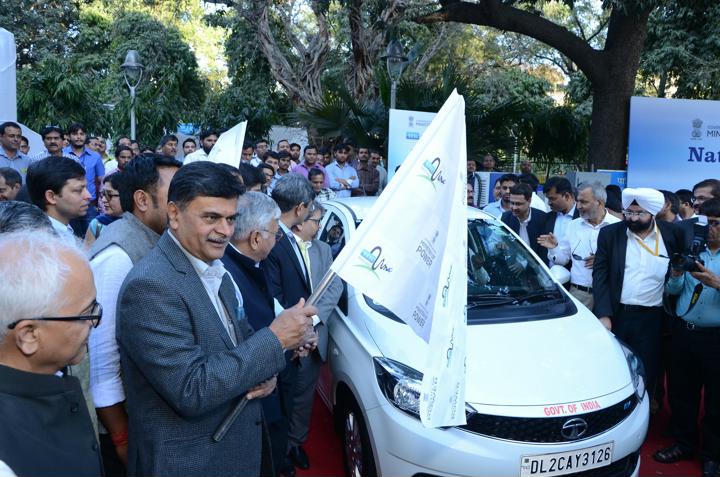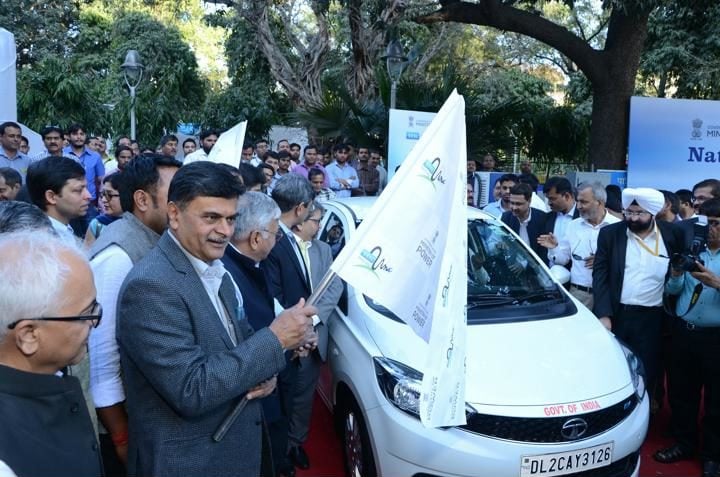The Government of India has launched a new National E-Mobility Programme. it aims at a realistic goal of 30 percent electric vehicles in India by 2030. A fresh tender for procurement of electric vehicles will be issued soon.
The Ministry of Power has launched a new National E-Mobility programme in India. it aims at a realistic goal of 30 percent new electric cars in India by the year 2030. Earlier, this stood at an over-ambitious figure of 100 percent. Nevertheless, under this scheme, the government will procure 10,000 electric vehicles. This will add to the existing 10,000 which were procured last year. The total 20,000 EVs will replace Government’s existing fleet of petrol and diesel powered vehicles.
National E-Mobility Programme: What’s It All About?
Under this new programme, the Government is going to procure electric vehicles for its fleet. The state-run Energy Efficiency Services Limited (EESL) is in charge for this. 10,000 EVs already exist in the Government’s fleet. The Ministry will issue a new tender to add 10,000 more this year.
Also Read: Hyundai Kona Electric SUV Launch Confirmed For India: We Tell You All About It
National E-Mobility Programme: What Are The Goals?
Earlier, rather enthusiastically the Government stated to have 100 percent electric cars in India by 2030. The new programme sets it at a comparatively realistic 30 percent.
National E-Mobility Programme: Environmental Effect?
According to the Government, the 20,000 electric cars in its fleet will replace the current petrol and diesel-powered vehicles. This alone will reduce India’s annual fuel consumption by 5 crore litres. As a result, our country’s annual CO2 emissions will reduce by 5.6 lakh tonnes. Going further, by 2030, numbers will look even more promising.
Also Read: Mahindra Ford Joint Venture To Launch Aspire EV In India By 2019
National E-Mobility Programme: Industry Effect?
The bulk procurement of the electric vehicles will help the Government to achieve economies of scale.The EESL aims at targeting efficiencies of scale which in turn will help in keeping the costs low. Also, it plans to support local manufacturing. This will result in automakers achieve technical expertise and emerge India EV manufacturers as major global players. This will, in turn, result in a long-term growth of the EV industry.
National E-Mobility Programme: Who Are The Major Contenders?
Currently, the Government’s EV fleet consists of the Mahindra e-Verito and the Tata Tigor EV. That said, on the other hand, other automobile manufacturers are also working extensively towards electrifying or introducing electric vehicles in their portfolio. Maruti Suzuki has announced that it will launch its first affordable electric vehicle in India by 2020. On the other hand, Hyundai has confirmed that its electric vehicle will debut in India by 2019.



